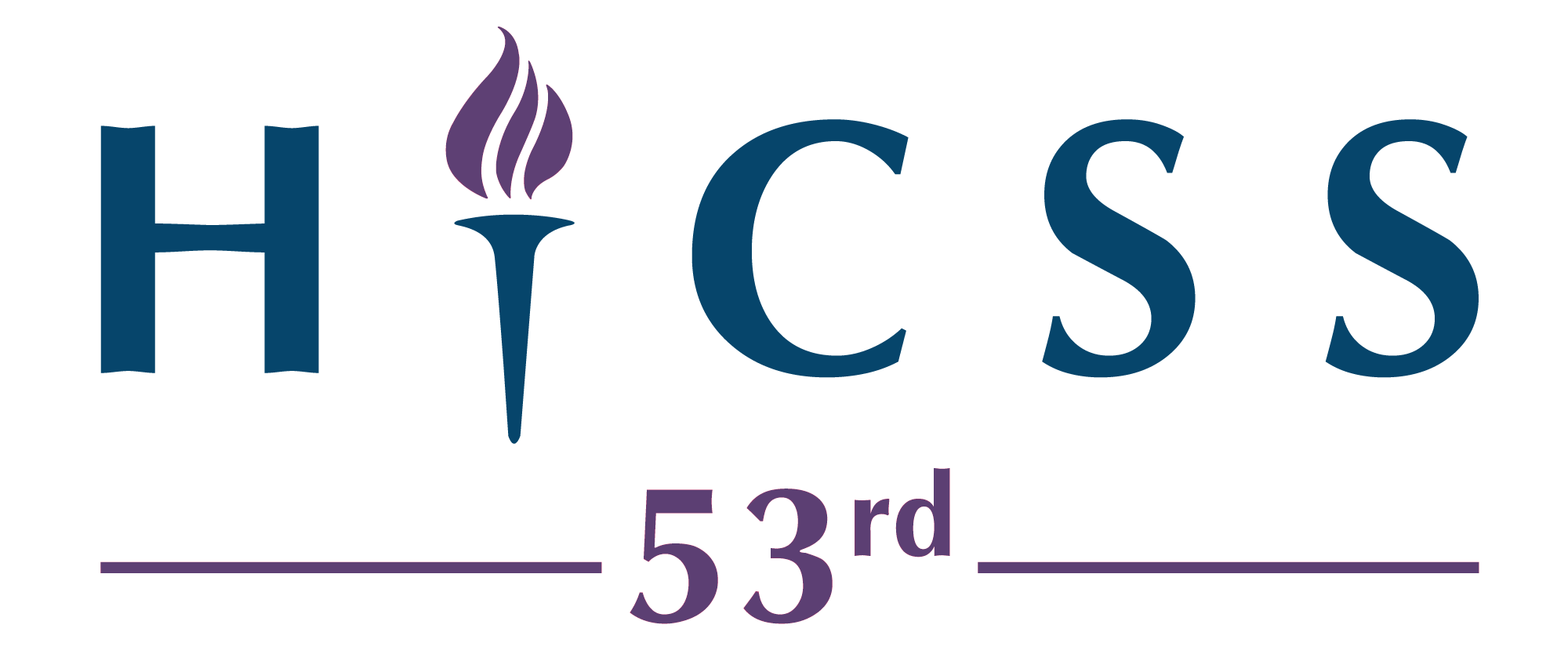HICSS - 53 Digital Government Track
53rd Hawaii International Conference on System Sciences
January 7-10, 2020 - Grand Wailea, Maui, HI, USA
Overview
Minitracks
Tutorials and Workshops
Other Links
A Thriving Domain of Multidisciplinary Scholarship
Digital Government is a multidisciplinary research domain that studies the use of information and technology in the context of public policy-making (e.g., governance, open government, and digital divides), government operations (e.g., management, organization, infrastructure, interoperability, emergency management, safety, and security), government transformation (e.g., innovation, entrepreneurship), citizen engagement and interaction (e.g., social media, e-Participation, transparency, collaboration, co-creation, and digital democracy), and government services (e.g., information provision, interactive applications).
Numerous disciplines contribute to this intersection of research, such as computer science, information systems, information science, political science, public policy, organizational sciences (public administration and business administration), sociology, and psychology, among others.
The HICSS Digital Government Track has been a forum for groundbreaking studies and new ideas in this particular research domain. Many studies first presented here were developed further and then turned into publications at top journals. Fifteen minitracks cover the full spectrum of research avenues of digital government, including minitracks dedicated to emerging topics, open government, and social media, or most recently, government and disaster resiliency and supply chain security.
The HICSS Digital Government Track has assumed an excellent reputation among Digital Government scholars and the larger academic community. In a recent study, it has been ranked the academically most rigorous and most valuable research conference on Digital Government in the world. The Digital Government Track has the lowest acceptance rate of all HICSS tracks and the highest average per-session attendance. Having a paper accepted at the Digital Government Track at HICSS means something. The Track’s best eight to twelve papers will be invited to appear in extended and further enhanced versions in a special issue at the domain’s leading journal, Government Information Quarterly.






Important Deadlines
More information on the track chairs:
Hans Jochen Scholl serves as a Professor in the Information School at the University of Washington, Seattle, WA. He earned a Ph.D. in Information Science from the University of Albany, NY/SUNY and also holds a Master's degree in Business Administration from the GSBA Zurich, Switzerland. His research interests focus on understanding human-originated complex systems, in particular, by means of system dynamics. Besides quantitative approaches, he also embarks on qualitative research using Action Research, Situational Action Analysis among other methods. Areas of study include information management, electronic government, disaster studies (disaster information management), technology evolution, and pro sports information management. Jochen is a past president of the Digital Government Society and serves as Chair of the IFIP WG 8.5 (IS and Public Administration). Jochen's group also maintains and publishes the Digital Government Reference Library (DGRL).
John Bertot, Ph.D./Syracuse, is Professor at the University of Maryland's College of Information Studies. He also serves as Co-Director of the Information Policy & Access Center. His research and teaching focus on information policy, equitable access, and public service innovation. He served as editor of Government Information Quarterly from 2000-2015, and is past-president of the Digital Government Society.
"Over the years, the Digital Government Track at HICSS has developed into a premier platform for researchers from around the world to present and discuss their best work with colleagues."
- Hans Jochen Scholl
"The Digital Government Track has emerged as foremost venue for significant scholarship and practice in digital government. Bringing together researchers, policymakers, and practitioners, the Digital Government Track serves as a catalyst for leading edge research and solutions to the challenges and opportunities of technology-enabled government."
- John Bertot
Contact Information
Hans J (Jochen) Scholl
University of Washington
The Information School
Mary Gates Hall, Suite 370c
Box 352840
Seattle, WA 98195-2840, USA
Phone: +1-206-616-2543
Fax: +1-206-616-3152
Email: jscholl@uw.edu
John Bertot
Professor and Associate Provost for Faculty Affairs
2117B Administration Building
University of Maryland College Park
College Park, MD 20742
Phone: 301.405.4252
Email: jbertot@umd.edu


